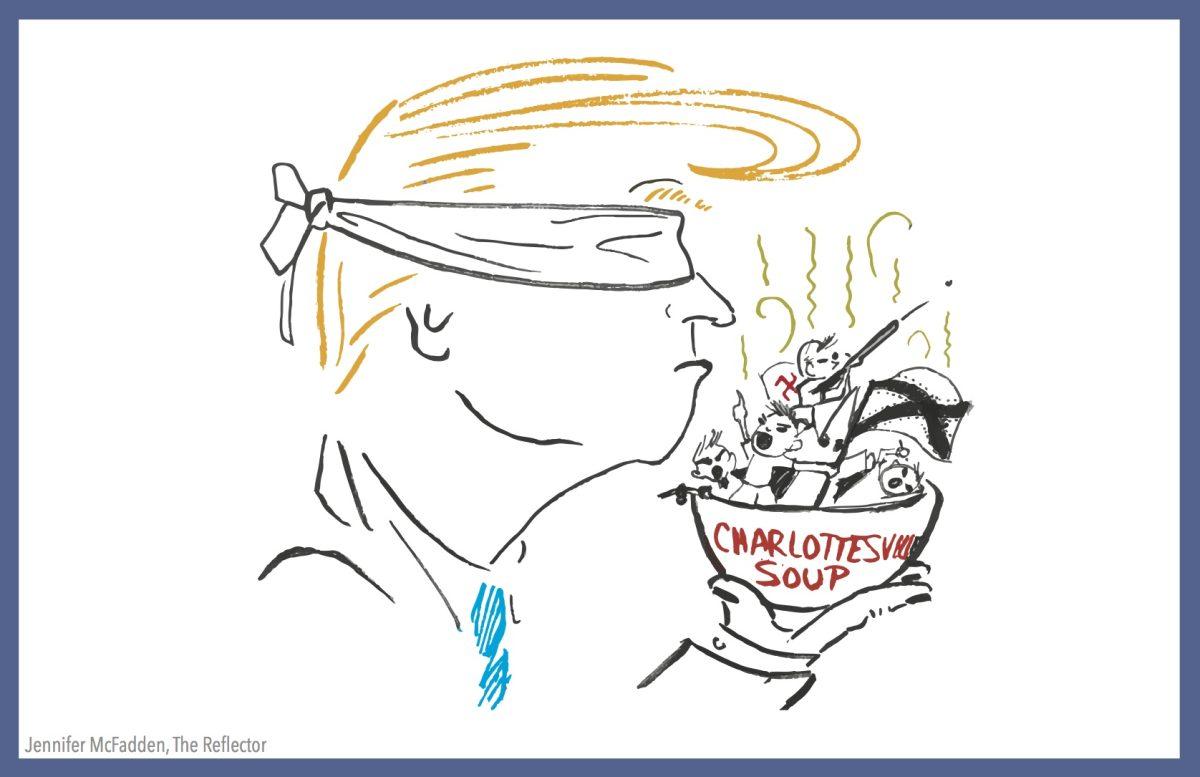In light of the attack and protest in Charlottesville, Virginia, America is forced to ask itself: where is all this “sudden” racism originating and why does it seem like today’s epidemic of rejecting people based on skin color is so outrageously common?
The answer goes deeper than just a lack of acceptance-based communication at the dinner table or in our schools. America now has a seemingly racist president immediately following the term of the country’s first black president. This timing has had a significant and negative impact.
Political ideologies set aside—socially, President Donald Trump was not the best choice for America following former President Barack Obama.
The equation is straightforward. White supremacists, the “alt-right”, are outraged by Obama winning the 2008 election, they stay infuriated throughout his presidency and then seemingly racist Trump, whom these hate-group members most likely voted for, wins office. These white supremacists feel like they’ve found an acceptance from their new leader, and thus, these racist groups feel welcomed to be themselves.
That’s why there seems to be such an increase in hate-related crimes and protests—because these crazy white supremacists think it’s now OK to publicly act this way. Granted, Trump has not given them much reason not to. Between his travel ban, his movement to build a wall and his refusal to respond to the Minnesota mosque bombing, just to name a few of my grievances, he has shown white Americans it is OK to treat others badly based on the color of their skin.
Learning from Trump’s example, every tan-skinned and dark-haired person is trying to steal your job, get your kids addicted to cocaine and blow you up. Most of us are taught that if a tragedy happens, you need to be respectful and at least pretend to have remorse (even if you don’t like the group the tragedy happened to); unless, of course, you’re the president of the United States. Because if you’re Trump, a bombing can happen on your soil and you don’t have to care enough to even acknowledge it.
Build a wall. Kick them out. Keep them out. That’s how you make America great.
With Obama, things were different for America as a whole. Acceptance was taught and expected. If someone made a slur, a person would be quick to demand people outwardly show respect toward their fellow Americans and humans in general. We had a black president, after all—it was a new social age of leveling the playing field. We weren’t playing chicken with North Korea. We weren’t building a wall. We weren’t teaching hate.
While Obama’s time in office involved racial opposition too, the difference was most of this racism was directed at Obama himself. In Trump’s term, it’s been pointed at entire races and cultures—not just the president and his family. Both are unacceptable.
According to David Neiwert, a journalist who has done a series on domestic terrorism for MSNBC and has published a book on racism in America, between Election Day in 2008 and Obama’s Inauguration Day, there were hundreds of hate-related protests and crimes committed. From burning black churches, burning crosses in people’s yards KKK-style and hanging nooses from trees, to North Carolina State and, after his re-election, University of Mississippi students chanting racial obscenities—the racial hatred for Obama and his family was spread across the U.S.
Eventually, these racial outbursts subsided, or at least they were not as focused on by the media. After the elections, the majority of the protests that occurred throughout the Obama administration were in regards to different legislations being passed.
Some may argue that Ferguson was a racial protest, but they are wrong. The issue being protested at these events was a matter of police brutality towards black Americans specifically, and with no justifiable cause. The #BlackLivesMatter movement was a much-needed reminder to Americans that had once again gone numb to the racial inequalities in our country.
To simply say people are still numb is an understatement. People, like those responsible for Charlottesville, are pushing the divide making these inequalities greater and harsher.
Throughout Trump’s discourse on the attack in Charlottesville, he did not condemn the actions of the racists and neo-Nazis; rather, he leveled the fault between the hate-groups and the protestors that attended. In fact, the president was practically defending the “alt-right” in such a way that David Duke, former KKK leader, actually thanked the president for his remarks.
When a KKK leader tells you you’re doing a great job, something is painfully wrong.
There may never be racial equality in America. The history of hatred and violence may have cut too deep of a wound in our country to be healed. But if we will ever reach racial equality, this much-needed acceptance will have to overcome the decades that Trump and his administration has set America back.
Categories:
How Trump affects racism in America
0
More to Discover
















































































